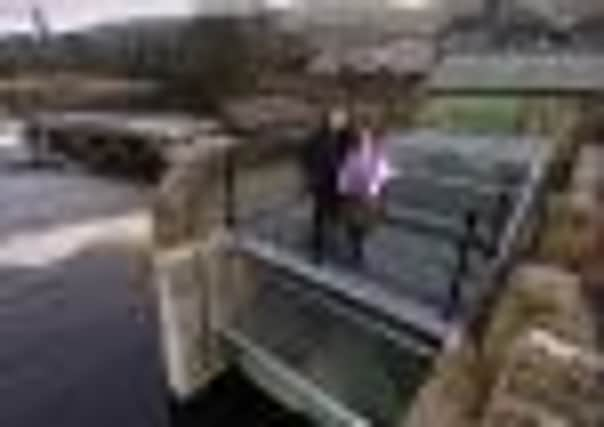Salmon fishing ‘harmed by hydro scheme’


The Environment Agency has launched an investigation following reports by anglers that salmon catches have fallen dramatically since the plant on the River Ribble at Settle was opened two years ago. At nearby Stainforth Foss – which in the past has been featured on TV for its spectacular views of leaping salmon – many tourists have been disappointed to discover there are no salmon to be seen.
When the £410,000 community-owned hydro plant was built it was sited directly alongside a concrete salmon pass which should allow migrating fish to swim upstream to their spawning grounds.
Advertisement
Hide AdAdvertisement
Hide AdBut John Breckon, bailiff for a local angling consortium, said many salmon no longer used the pass because they were frightened away.
“When you stand next to the plant you can feel the vibration through your feet,” he said.
“The noise is tremendous, sound travels underwater and it’s frightening the fish back downstream.
“On occasions when the generator shuts down one or two salmon will get through but by that time most of them have gone.”
Advertisement
Hide AdAdvertisement
Hide AdMr Breckon said since the plant was built average annual catches on his consortium’s one-mile stretch of river had fallen from 17 to two.
“Our fishing has been absolutely devastated. I’ve got records going back 27 years and we’ve had two of the worst seasons ever known,” he said.
The generator is a reverse Archimedes Screw type, based on a 1,800-year-old design by the Ancient Greek mathematician. It generates 50kw of electricity – enough to power 50 homes – and it has won awards as a community-led green energy project. It is operated by the community group Settle Hydro Ltd, which sells excess power to the National Grid and uses the proceeds for local projects.
Mr Breckon has sent video evidence on salmon movements over the past two years to the Environment Agency. He said he had raised the issue of salmon migration when the generating plant was under construction.
Advertisement
Hide AdAdvertisement
Hide Ad“I personally went down there several times to speak to the people building the screw and to Environment Agency officials to express my concerns because I could see what was going to happen,” he said.
“But they assured me on every occasion it wouldn’t affect fish running at all.”
David Hinks, chairman of the Ribble Fisheries Consultative Association, said data from an automated counting device just upstream of Settle confirmed that the number of salmon migrating upstream had fallen sharply.
“It’s difficult to prove cause and effect but it’s a bit of a coincidence that this has happened since the hydro plant began operating,” he said.
Advertisement
Hide AdAdvertisement
Hide AdMr Hinks, who represents landowners and more than 20 angling clubs on the Ribble, said in theory Archimedes Screws were more fish-friendly than more conventional types of generators. But he said, apart from the issue of noise and vibration, there was also evidence that Settle Hydro had been taking too much water from the river flow for their generator. He said this, in turn, could leave insufficient water in the fish pass – a series of small pools designed to allow the salmon to bypass man-made obstacles.
Organisation investigated
The Environment Agency confirmed Settle Hydro has breached the terms of licence conditions on the amount of water taken from the river 238 times and an investigation was under way.
“We are looking at data from a number of sources, including information from local anglers, to see whether the presence of the scheme could be preventing fish from migrating upstream to spawn,” said a spokeswoman.
Settle Hydro director Ann Harding said they were working closely with the Environment Agency and went to great lengths to ensure any impact on the ecology was minimised.